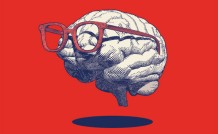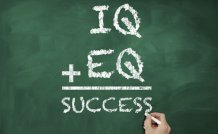Online Class: Critical Thinking

no certificate
with CEU Certificate*
-
12Lessons
-
12Exams &
Assignments -
1,660Students
have taken this course -
5Hours
average time -
0.5CEUs
Course Description
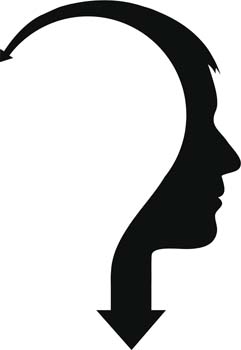
The human mind is built to think. Some of us do it better than others. Every one of us can learn how to think better. Critical thinking is thinking done with depth, clarity, logic, and precision. It attempts to connect patterns of information into patterns of thought, either to solve a problem, generate ideas, or come up with creative concepts. When thinking critically, viewpoints are examined, as well as the biases, data, and concepts driving the viewpoints.
Do we have to learn to think critically? Isn't it something we already learned in school from a young age?
Unfortunately, many of us do not think critically at the level we should. Isaac Asimov, the science fiction writer, reported on the understanding Americans have of scientific concepts. A telephone survey was conducted by the Public Opinion Laboratory at Northern Illinois University. Asimov states that the researchers conducting the survey found that more than one-fifth of over 2,000 American adults believed that the sun revolved around the earth. People spend their money on products that do not work. Companies make billions of dollars using advertising campaigns that promote products whose results are not indicated by science.
Traditionally, schoolwork involves more memorization than critical thinking. Assignments are based more on the ability to consolidate information, memorize it, and then write it out on an exam, without ever really teaching us, or testing us on our ability to logically think through information. Knowledge is important, but it is equally important, and perhaps more so, to be able to think critically, and to apply logic to the knowledge that we have. Being unable to do so is like having a well filled with water, but no way of getting that water out. The water stays stagnant, and is near useless, unless we tap into it. The same thing applies to knowledge and thought: We need knowledge, but without the tools to use it properly, it is nearly worthless. Hence, why we need to learn what critical thinking actually is, and how to do it.
- Completely Online
- Self-Paced
- Printable Lessons
- Full HD Video

- 6 Months to Complete
- 24/7 Availability
- Start Anytime
- PC & Mac Compatible
- Android & iOS Friendly
- Accredited CEUs

Course Lessons
Lesson 1: Introduction to Critical Thinking
 Lesson 1 Video
Lesson 1 Video Lesson discussions: Reasons for Taking this Course
Lesson discussions: Reasons for Taking this Course Complete Assignment: An Introduction
Complete Assignment: An Introduction Assessment: Exam 1
Assessment: Exam 1
Lesson 2: Types of Reasoning Skills
 Lesson 2 Video
Lesson 2 Video Assessment: Exam 2
Assessment: Exam 2
Lesson 3: Clear Thinking, Critical Thinking, and Clear Writing
 Lesson 3 Video
Lesson 3 Video
Lesson 4: Persuasion
 Lesson 4 Video
Lesson 4 Video Assessment: Exam 4
Assessment: Exam 4
Lesson 5: Types of Inductive Arguments
 Lesson 5 Video
Lesson 5 Video Assessment: Exam 5
Assessment: Exam 5
Lesson 6: Types of Reasoning (moral, legal, aesthetic, etc.)
 Lesson 6 Video
Lesson 6 Video Assessment: Exam 6
Assessment: Exam 6
Lesson 7: How to Inspire Critical Thinking in Teams and Organizations
 Lesson 7 Video
Lesson 7 Video Assessment: Exam 7
Assessment: Exam 7
Lesson 8: Techniques for Sparking Ideas, Solving Problems
 Lesson 8 Video
Lesson 8 Video Assessment: Exam 8
Assessment: Exam 8
Lesson 9: Defining Problems and Making Decisions
 Lesson 9 Video
Lesson 9 Video Assessment: Exam 9
Assessment: Exam 9
Lesson 10: Using Teams to Think Critically and Problem Solve
 Lesson 10 Video
Lesson 10 Video Assessment: Exam 10
Assessment: Exam 10
Lesson 11: Strategic Planning and Scenario Planning
 Lesson 11 Video
Lesson 11 Video Assessment: Exam 11
Assessment: Exam 11
Lesson 12: Exploring Your Personal Critical and Creative Thinking Skills
 Lesson 12 Video
Lesson 12 Video Lesson discussions: How would you rate this course?; Course Comments; Program Evaluation Follow-up Survey (End of Course)
Lesson discussions: How would you rate this course?; Course Comments; Program Evaluation Follow-up Survey (End of Course) Assessment: The Final Exam
Assessment: The Final Exam
Learning Outcomes
- Define critical thinking is.
- Describe types of reasoning skills.
- Recognize clear thinking, critical thinking, and clear writing.
- Describe persuasion.
- Describe types of inductive arguments.
- Summarize how to inspire critical thinking in teams and organizations.
- Summarize techniques for sparking ideas, solving problems.
- Summarize defining problems and making decisions.
- Describe how to use teams to think critically and problem solve.
- Summarize strategic planning and scenario planning.
- Describe your personal critical and creative thinking skills.
- Demonstrate mastery of lesson content at levels of 70% or higher.
Additional Course Information

- Document Your Lifelong Learning Achievements
- Earn an Official Certificate Documenting Course Hours and CEUs
- Verify Your Certificate with a Unique Serial Number Online
- View and Share Your Certificate Online or Download/Print as PDF
- Display Your Certificate on Your Resume and Promote Your Achievements Using Social Media

Choose Your Subscription Plan
No Certificate / No CEUs
This course only
| Includes certificate | X |
| Includes CEUs | X |
| Self-paced |

|
| Instructor support |

|
| Time to complete | 6 months |
| No. of courses | 1 course |
Certificate & CEUs
This course only
| Includes certificate |

|
| Includes CEUs |

|
| Self-paced |

|
| Instructor support |

|
| Time to complete | 6 months |
| No. of courses | 1 course |
Certificates & CEUs
Includes all 600+ courses
| Includes certificate |

|
| Includes CEUs |

|
| Self-paced |

|
| Instructor support |

|
| Time to complete | 12 Months |
| No. of courses | 600+ |
Certificates & CEUs
Includes all 600+ courses
| Includes certificate |

|
| Includes CEUs |

|
| Self-paced |

|
| Instructor support |

|
| Time to complete | 24 Months |
| No. of courses | 600+ |
Student Testimonials
- "The course caused me to think about the subject, realizing that critical thinking is a changing field, it seems, with various aspects of it applicable to different scenarios." -- Richard E.
- "This was very helpful and more challenging than I expected. Took me several months to complete because my job is demanding and this forced me to focus and retain - which is good. Thank you." -- Almira D.
- "Very helpful. I feel more confident approaching anything coming at me knowing that taking the time to do critical thinking is an important step before making any decision." -- Wendy L.
- "This course was great. Thank you for its development." -- Kolleen D.
- "Great course. Thank you." -- Jay M.
- "It was marvelous!" -- Cesar P.
Related Courses
-
 87 hours
8.7 CEUs
Writing Help Course Bundle
$135.00
87 hours
8.7 CEUs
Writing Help Course Bundle
$135.00
-
 10 hours
1.0 CEUs
Memory and Concentration Techniques
$95.00
10 hours
1.0 CEUs
Memory and Concentration Techniques
$95.00
-
 36 hours
3.6 CEUs
Ultimate Secretary Training Bundle
$150.00
36 hours
3.6 CEUs
Ultimate Secretary Training Bundle
$150.00
-
 14 hours
1.4 CEUs
Writing Improvement 101
$95.00
14 hours
1.4 CEUs
Writing Improvement 101
$95.00
-
 6 hours
0.6 CEUs
Workplace Drug Use - An HR Guide
$95.00
6 hours
0.6 CEUs
Workplace Drug Use - An HR Guide
$95.00
-
 7 hours
0.7 CEUs
Time Management 101
$95.00
7 hours
0.7 CEUs
Time Management 101
$95.00
-
 6 hours
0.6 CEUs
Personal Assistant 101
$95.00
6 hours
0.6 CEUs
Personal Assistant 101
$95.00
-
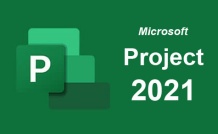 9 hours
0.9 CEUs
Microsoft Project 2021
$95.00
9 hours
0.9 CEUs
Microsoft Project 2021
$95.00
-
 6 hours
0.6 CEUs
Fair Standards Labor Act and the Workforce
$95.00
6 hours
0.6 CEUs
Fair Standards Labor Act and the Workforce
$95.00
-
 7 hours
0.7 CEUs
Conflict Resolution 101
$95.00
7 hours
0.7 CEUs
Conflict Resolution 101
$95.00
-
 3 hours
0.3 CEUs
How to Improve Your Concentration
$95.00
3 hours
0.3 CEUs
How to Improve Your Concentration
$95.00
-
 7 hours
0.7 CEUs
Introduction to Logic
$95.00
7 hours
0.7 CEUs
Introduction to Logic
$95.00
-
 5 hours
0.5 CEUs
Kaizen 101 - An Introduction
$95.00
5 hours
0.5 CEUs
Kaizen 101 - An Introduction
$95.00
-
 8 hours
0.8 CEUs
Behavior Management 101
$95.00
8 hours
0.8 CEUs
Behavior Management 101
$95.00
-
 7 hours
0.7 CEUs
Financial Analysis 101: Planning and Control
$95.00
7 hours
0.7 CEUs
Financial Analysis 101: Planning and Control
$95.00
-
 6 hours
0.6 CEUs
Confidence Building
$95.00
6 hours
0.6 CEUs
Confidence Building
$95.00
-
 8 hours
0.8 CEUs
Procurement Management
$95.00
8 hours
0.8 CEUs
Procurement Management
$95.00
-
 6 hours
0.6 CEUs
Gender Sensitivity Training
$95.00
6 hours
0.6 CEUs
Gender Sensitivity Training
$95.00
-
 7 hours
0.7 CEUs
Interpersonal Communication
$95.00
7 hours
0.7 CEUs
Interpersonal Communication
$95.00
-
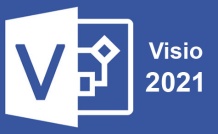 6 hours
0.6 CEUs
Microsoft Visio 2021
$95.00
6 hours
0.6 CEUs
Microsoft Visio 2021
$95.00
-
 7 hours
0.7 CEUs
Respectful International Workplace
$95.00
7 hours
0.7 CEUs
Respectful International Workplace
$95.00
-
 5 hours
0.5 CEUs
Operations Management 101
$95.00
5 hours
0.5 CEUs
Operations Management 101
$95.00
-
 12 hours
1.2 CEUs
Serial Killers 101
$95.00
12 hours
1.2 CEUs
Serial Killers 101
$95.00
-
 7 hours
0.7 CEUs
Memory Improvement
$95.00
7 hours
0.7 CEUs
Memory Improvement
$95.00
-
 5 hours
0.5 CEUs
Building Self-Esteem in Children
$95.00
5 hours
0.5 CEUs
Building Self-Esteem in Children
$95.00
-
 7 hours
0.7 CEUs
Collaboration Skills
$95.00
7 hours
0.7 CEUs
Collaboration Skills
$95.00
-
 5 hours
0.5 CEUs
Running Effective Meetings
$95.00
5 hours
0.5 CEUs
Running Effective Meetings
$95.00
-
 5 hours
0.5 CEUs
Project Management 101
$95.00
5 hours
0.5 CEUs
Project Management 101
$95.00
-
 5 hours
0.5 CEUs
Lawful Employee Termination
$95.00
5 hours
0.5 CEUs
Lawful Employee Termination
$95.00
-
 8 hours
0.8 CEUs
Creating a Positive Work Environment
$95.00
8 hours
0.8 CEUs
Creating a Positive Work Environment
$95.00
-
 7 hours
0.7 CEUs
Organizational Behavior in Business
$95.00
7 hours
0.7 CEUs
Organizational Behavior in Business
$95.00
-
 3 hours
0.3 CEUs
Building Self Esteem
$95.00
3 hours
0.3 CEUs
Building Self Esteem
$95.00
-
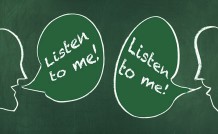 5 hours
0.5 CEUs
Listening Skills 101
$95.00
5 hours
0.5 CEUs
Listening Skills 101
$95.00
-
 7 hours
0.7 CEUs
Innovative Thinking
$95.00
7 hours
0.7 CEUs
Innovative Thinking
$95.00
-
 7 hours
0.7 CEUs
Lean Management
$95.00
7 hours
0.7 CEUs
Lean Management
$95.00
-
 7 hours
0.7 CEUs
Introduction to Ethics
$95.00
7 hours
0.7 CEUs
Introduction to Ethics
$95.00
-
 7 hours
0.7 CEUs
Preventing Workplace Harassment
$95.00
7 hours
0.7 CEUs
Preventing Workplace Harassment
$95.00
-
 6 hours
0.6 CEUs
Delegation Skills
$95.00
6 hours
0.6 CEUs
Delegation Skills
$95.00
-
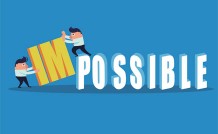 6 hours
0.6 CEUs
Goal Setting for Business
$95.00
6 hours
0.6 CEUs
Goal Setting for Business
$95.00


